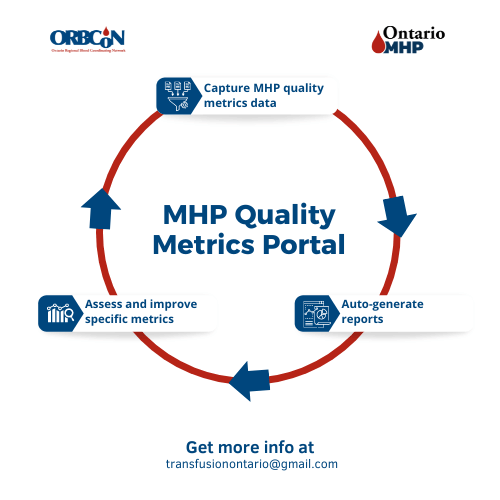Code Grey – Cyber Attack – Lessons Learned – You Can Survive!
Stephanie Thompson, MLT, BSC, MLS(ASCP)CM, Lead Technologist Hematology Department, WRH-Met Campus
Jessica Fortier, MLT, Lead Technologist Chemistry Department, WRH-Met Campus
Nicole Pilutti, MLT, Lead Technologist Transfusion Medicine Department, WRH-Met Campus
As we look back over the period in our lives from Oct 23, 2023 until Dec 13, 2023 our thoughts turn to the fact that we made it through. First some background. Windsor Regional Hospital – Metropolitan Campus was among the 5 southwestern Ontario hospitals to experience a cyber-attack in the middle of the night on a Sunday. On Monday morning, faced with no email, no Laboratory Information System, and no Hospital Information System, we served our patients to the best of our ability, often figuring new things out on the fly. This is a brief synopsis of how you can be prepared so you don’t have to figure it out on the fly. Lab is heavily reliant on automation and electronic systems in order to provide care to a high volume of patients, while ensuring quality and safety. How were we going to develop systems to be able to still provide the same level of quality care, safely?
- With no email available, a mass text program, RAVE, was set up for employees to sign up for. It gave occasional updates on what was going on behind the scenes, all the way to general communications.
- A large paper easel was set up for shift to shift communication and questions for management.
- Make sure your fax numbers are up to date for all the areas you service. Perhaps extra fax machines brought in. Lots of toner, paper and printer ink should be ordered.
- Addition of non-technical staff brought in to help with answering phones, faxing results and file finished reports.
- Addition of extra technologists and lab assistants is also a consideration.
- Explore the availability of printing directly from the instrument. Some of our instruments printed results with each sample run automatically, while others needed to be force printed for each patient.
- In our case, computers were available, just no network or LIS, however a spreadsheet was still functional for signing out blood products and entering daily QC. QC programs like Unity were still available to track QC. We have very robust downtime files on a USB stick, ready to go.
- Ensure updated abridged documents are available for critical values and criteria for extended or reflexive testing.
- A Backup of all SOP’s would come in handy, if possible, especially for results that require calculation.
- Developed barcode generation program utilizing existing barcode printers. Also, created stickers for reports indicating critical results phoned with time and, sample integrity (i.e., HIL indices)
- A process for manual filing (alphabetical or numerical) to ensure results can be retrieved if necessary.
- Developed Chemistry panels to streamline manual programming on analyzers and help reduce add-on testing.
- Have copies of catalogue numbers, suppliers, account numbers or billing codes for all the inventory you use, it makes ordering the things you need a lot easier.
- Some LIS transfusion medicine programs have a downtime viewer that records all the pertinent information on all patients that have been tested before. Be familiar with the process to download that information that is saved in the hard drive.
- Make sure your downtime requisitions are current, match the testing you do and are functional.
At the end of the day, all departments and their staff have to minimize these disruptions in order to provide quality, safe patient care.
Related Article
Password Managers can Help Protect your Hospital Network from Cyber Attacks
Featured Resources
MHP Quality Metrics Portal
Note: Each Ontario hospital will need to determine where the data for the metrics is housed within their facility and who will be responsible for gathering and entering the data.

Upcoming Events
Transfusionists Talk

GHEST 2024 Save the Date

U of T

June 20, 2024 @12pm-1pm
MLT Session – Interesting serology cases
Subscribe to U of T Transfusion Medicine Rounds mailing list to get register